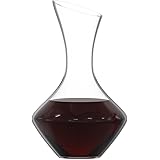The humble pomegranate, with its jewel-toned arils, has long been revered as a symbol of health and vitality across various cultures. While many intuitively recognize the fruit’s beneficial qualities, it has only been in recent years that rigorous scientific inquiry has truly illuminated the profound pomegranate health benefits. As detailed in the accompanying video, the journey of understanding this fruit’s impact has even included notable legal battles, where the Federal Trade Commission challenged unsubstantiated claims by a prominent juice company. The compelling irony, however, is that pomegranates inherently possess an astonishing array of health-promoting compounds, requiring no exaggerated marketing.
Indeed, this fleshy berry is far more than just a tasty snack; it constitutes a nutritional powerhouse. Pomegranates deliver an impressive complement of dietary fiber, alongside essential vitamins like C and K, and vital minerals such as iron and potassium. However, their true distinction lies in a rich concentration of antioxidants and potent anti-inflammatory properties, making them a formidable defense against numerous chronic diseases. These properties are largely attributed to a unique precursor molecule that, once processed by our internal ecosystems, unlocks a remarkable anti-aging compound.
The Biochemical Alchemy of Pomegranates: Unlocking Urolithin A
The most significant source of pomegranate’s impressive antioxidative capacity can be traced to a chemical known as Punicalagin. This compound belongs to the family of ellagitannins, which are predominantly found within the edible portions of the fruit. When we consume pomegranates, an intricate biological process commences: our gut bacteria diligently convert these ellagitannins into a truly powerful anti-aging molecule called Urolithin A.
This conversion pathway highlights the remarkable synergy between our diet and our internal microbial partners. Without the appropriate microbial community in our gut, the body may struggle to produce sufficient levels of Urolithin A, thereby missing out on its extensive health advantages. Therefore, the simple act of eating a pomegranate initiates a cascade of events that resonates throughout our cellular architecture, providing benefits far beyond basic nutrition.
Urolithin A and Mitophagy: Rejuvenating Cellular Powerhouses
To fully appreciate why Urolithin A is considered a key player in slowing the aging process, particularly concerning our muscles, it becomes necessary to examine the intricate world of cellular energetics. Within nearly every cell of your body reside microscopic structures known as mitochondria. These organelles, often likened to miniature batteries, generate approximately 90% of the energy essential for your body’s functions. Much like any battery, mitochondria can become damaged, defective, or simply old, diminishing their efficiency.
For the body to maintain optimal performance, it must possess mechanisms to repair and, crucially, to replace these compromised mitochondria. This vital process is termed mitophagy, a sophisticated cellular self-destruct sequence wherein damaged mitochondria are identified and efficiently eliminated. Subsequently, the cell synthesizes brand-new mitochondria, effectively rejuvenating its energy production capabilities. This cellular recycling process not only ensures robust energy levels but also purges dysfunctional and potentially toxic elements from within our cells.
Regrettably, as we advance in age, the efficiency of the mitophagy process frequently declines. This deceleration means that cellular toxins may accumulate rather than being recycled or removed promptly, leading to an accelerated aging of our body’s cells, including the crucial muscle cells. Conversely, maintaining a consistent exercise regimen naturally triggers the production of new mitochondria and significantly boosts energy levels within our skeletal muscle cells, even as we age.
Urolithin A: A Mimic of Exercise for Muscle Health
Intriguingly, research has demonstrated that Urolithin A plays a critical role in promoting mitophagy, leading to an increased generation of new mitochondria and an overall enhancement of mitochondrial function in elderly individuals. These effects closely mirror the positive physiological adaptations observed with regular physical exercise, helping to preserve muscle strength and retain vital energy reserves even in later life. Furthermore, various animal studies have consistently shown that Urolithin A can substantially improve endurance levels in both young and older subjects by enhancing overall muscle health. While the synergistic effects of Urolithin A and exercise combined are still under investigation, the potential for enhanced benefits is certainly a tantalizing prospect for longevity enthusiasts.
Pomegranates as Prebiotics: Cultivating a Thriving Gut Microbiome
Beyond its direct impact on cellular aging, the pomegranate’s influence extends deeply into the very core of our digestive system: the gut. Our gut, a complex collection of digestive organs encompassing the stomach, small intestine, and the large intestine (colon), hosts an astonishing community of approximately 100 trillion bacteria. A diverse and flourishing population of these beneficial bacteria, collectively known as the gut microbiome or gut flora, is absolutely paramount for overall health.
This intricate microbial ecosystem performs an incredible array of functions. It meticulously regulates our immune responses, actively prevents chronic inflammation, and serves as a crucial line of defense against numerous diseases. Moreover, the gut microbiome is instrumental in producing essential vitamins, such as vitamin K, and facilitating the absorption of vital nutrients from our food. It even plays a significant role in creating and regulating hormones that influence sleep patterns, memory, mood stability, and comprehensive mental health.
Upon digestion, pomegranates function powerfully as prebiotics. After consumption, the breakdown products, including gallic acid, ellagic acid, and glucose, reach the colon. There, specific bacteria convert them into Urolithin A, as previously discussed. These natural substances are instrumental in maintaining a healthy gut microbiome by acting similarly to traditional prebiotics: they are fiber-rich plant compounds that specifically stimulate the growth and activity of beneficial gut bacteria. Urolithin A, in particular, has been shown to encourage the proliferation of desirable bacteria such as Bifidobacteria and Lactobacilli, while simultaneously suppressing potentially harmful strains like Clostridia.
However, an important caveat exists within this biological framework. The specific composition of an individual’s gut microbiome is largely determined at birth and can be significantly influenced by various lifestyle factors. Practices such as smoking, excessive alcohol consumption, a poor dietary regimen, and frequent exposure to antibiotics can all unfortunately diminish the healthy balance of our gut bacteria. Consequently, if an individual lacks the specific microbial strains required to convert ellagitannins into Urolithin A, they may not be able to fully harness the remarkable anti-aging, anti-inflammatory, and antioxidant properties that Urolithin A offers. This discovery has spurred ongoing research into the benefits of direct Urolithin A supplementation, aiming to provide these advantages even to those who cannot produce the molecule naturally.
The Role of Short-Chain Fatty Acids in Gut Health
Furthermore, the Urolithin A generated by fecal bacteria also contributes to an increase in the production of short-chain fatty acids (SCFAs) within our bodies. SCFAs are critical for providing energy to the cells that line our gut, acting as vital fuel for maintaining gut integrity and function. They also play a pivotal role in assisting the body with the digestion of carbohydrates and fats, improving metabolic efficiency. Beyond their digestive contributions, SCFAs are instrumental in lowering inflammation within the gut environment, thereby ensuring that our complex gut microbiome operates optimally.
Combating Inflammation and Cancer: Pomegranate’s Protective Shield
Within the colon, specific cells known as colon fibroblasts are critically involved in regulating our immune responses. Since these cells directly line the colon, they are frequently exposed to various byproducts derived from the food we digest. Should these colon fibroblasts become agitated by certain dietary components or other stressors, chronic inflammation can ensue throughout the body. This inflammatory state can significantly alter the immune-regulating signals typically produced by these cells, potentially leading to debilitating conditions like Irritable Bowel Syndrome (IBS) and, more alarmingly, contributing to the development of colorectal cancer. It is a sobering fact that colorectal cancer tragically stands as the second leading cause of cancer-related deaths worldwide.
The family of Urolithin molecules, which includes Urolithin A and B, emerges as a significant player in mitigating these risks. As detailed, when we consume a pomegranate, its ellagitannins are converted into Urolithin A and B within the colon. In laboratory settings, when inflammation-producing cells were exposed to Urolithin A and B, along with ellagic acid, at concentrations comparable to those found in the colon, a distinct anti-inflammatory response was observed. Subsequent studies further isolated Urolithin A as the primary active compound responsible for this profound effect. These findings powerfully underscore the potential anti-inflammatory and anti-carcinogenic capabilities of Urolithin compounds, offering a glimmer of hope in preventive health strategies. The prebiotic effect of Urolithin, by stimulating SCFA production, also contributes significantly to maintaining robust colon health and actively helping to prevent colorectal cancer.
Cardiovascular Health: A Pomegranate Priority
The protective influence of pomegranates extends profoundly to cardiovascular health, a domain of immense importance in preventive medicine. Studies have demonstrated that pomegranate juice can significantly reduce triglyceride levels, improve high-density lipoprotein (HDL) cholesterol—often referred to as “good” cholesterol—and effectively lower blood pressure in hemodialysis patients. Furthermore, this remarkable fruit contributes to a substantial reduction in cardiovascular risk among individuals living with diabetes and obesity, populations frequently grappling with increased heart-related complications. While laboratory results provide encouraging insights into these benefits, the scientific community eagerly anticipates more conclusive human studies to fully elucidate and confirm the breadth of pomegranate’s cardiovascular protective mechanisms.
Whole Fruit Versus Juice: The Crucial Distinction
While the allure of concentrated pomegranate juice might seem appealing for quick access to its benefits, a crucial distinction must be made regarding consumption methods. As a general principle, consuming whole, raw fruit is overwhelmingly superior to drinking its juice. Pomegranate juice, by its very nature, provides a highly concentrated version of multiple pomegranates in a single serving, which can be advantageous for specific compound intake. However, it is equally important to acknowledge that pomegranates are naturally high in sugar. When fruit is processed into juice, the essential dietary fiber, which plays a critical role in regulating sugar absorption, is typically eliminated. Without this vital fiber, blood sugar levels can spike rapidly, which can be detrimental, particularly for individuals managing metabolic conditions. Therefore, choosing the whole fruit often offers a more balanced nutritional profile, leveraging both the potent compounds and the regulatory benefits of fiber.
The journey of understanding the profound pomegranate health benefits continues to unfold, revealing layer upon layer of scientific validation for this ancient fruit. Rich in fiber, essential vitamins, and a plethora of other nutrients, pomegranates stand out for their capacity to act as effective prebiotics, nourishing a healthy gut microbiome. Their potent anti-inflammatory properties are pivotal in maintaining intestinal health and may play a role in mitigating chronic diseases. Early studies, particularly those involving elderly individuals, suggest that the byproducts of pomegranate digestion can dramatically improve endurance, enhance muscle strength, rejuvenate cellular mitochondria for sustained energy, and ultimately contribute to slowing the multifaceted aging process. While ongoing human studies are necessary to definitively certify pomegranate extracts or juice as protective agents against serious conditions like cancer and cardiovascular disease, the preliminary research unequivocally presents a highly promising outlook. The fascinating aspect of specific gut bacteria converting pomegranates into Urolithin A, a molecule linked to numerous health advantages, underscores the personalized nature of nutrition. For those individuals whose gut flora may not produce Urolithin A naturally, the emerging research into direct Urolithin A ingestion offers a compelling pathway to access these remarkable benefits.







